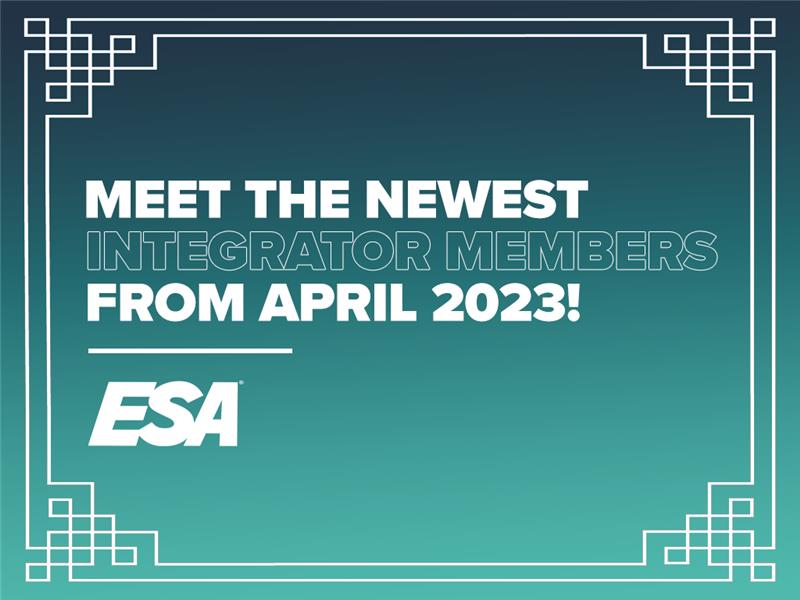ESA and SIA Write to Congress Supporting Skills Renewal Act
ESA and SIA have written a joint letter to Congress in support of the Skills Renewal Act (S. 3779 and H.R. 7032), which would create a flexible Skills Training Credit that job seekers displaced by the pandemic could use to buy training courses and similar education. This legislation would be a big boost to the industry’s talent pool by giving laborers more flexibility as they reenter the workforce. Read the full letter below.
June 17, 2020
U.S. Senator for State of Minnesota
United States Senate
Washington, DC 20510
U.S. Senator for State of Nebraska
United States Senate
Washington, DC 20510
Dear Senator Klobuchar and Senator Sasse:
On behalf of the Electronic Security Association (ESA) and the Security Industry Association (SIA), we would like to express our strong support for the Skills Renewal Act (S.3779 and H.R. 7032), which would create a flexible Skills Training Credit to cover costs associated with training courses and other postsecondary education programs for those who lost their job as a result of the coronavirus pandemic in 2020. This legislation will strengthen our nation’s labor force by allowing individuals to have greater flexibility in pursuing educational opportunities that can help to advance their careers upon reentry into the workforce.
ESA member companies employ more than 500,000 industry professionals and serve more than 34 million residential and commercial clients. SIA represents more than 1,000 innovative companies that provide safety and security technology solutions vital to public safety and the protection of lives, property, information, and critical infrastructure. Our respective association members in the life safety and security industry rely heavily on postsecondary education programs, such as hand-on technical training, certificates and certifications, to ensure the workforce possesses the requisite competencies to perform critical functions in safety and security. Many of our industry’s performance standards are validated though credentials and maintained through continuing education which makes them indispensable to public safety and business continuity.
SIA and ESA have undertaken several initiatives to address the “security skills gap” within our industry and help our members to identify and recruit qualified employees. In the coming weeks, ESA and SIA will officially launch the Foundation for Advancing Security Talent (FAST), which is intended to help businesses of all sizes identify and recruit qualified professionals for rewarding careers in a variety of industry job roles including security project management, cyber security, product engineering and systems integration.
As you and your colleagues begin to consider S. 3779, we respectfully urge the Committee to authorize funding for expenses necessary to obtain or maintain certification or licensure credentials that are separate from preparatory educational and training programs. Specifically, we recommend the following amendments to the legislation:
1. S. 3779 Should Permit Use of Funds for Expenses, Fees, and Costs Related to Certification Exams and Certification Maintenance
In most cases, to earn a certification credential, a candidate must pass an examination that is developed and administered by a separate organization from any program that provided the candidate’s preparatory training or education. Expanding the scope of S. 3779 to include these expenses would ease the financial burden on individuals seeking to apply for or maintain certification in a wider array of occupations and professions.
2. Qualified Training Services in S. 3779 Should be Expanded Beyond Local Programs
Expand the scope of qualified training services to include accredited institutions, online training programs or courses offered nationally to prepare individuals for certification exams, rather than just local or regional training programs. This would ensure that beneficiaries will have more options as they seek to pursue their chosen professions.
Enabling individuals to use the Skills Training Credit to cover certification-related expenses and pursue nationally recognized training programs would greatly expand the reach of these benefits to cover a much broader and more diverse group of individuals seeking to enter the workforce and allow them to advance their careers. Please let us know if there is any way we can assist you as you continue to examine these issues.
Sincerely,
Don Erickson
CEO
Security Industry Association
Merlin J. Guilbeau, IOM
CEO
Electronic Security Association, Inc.




